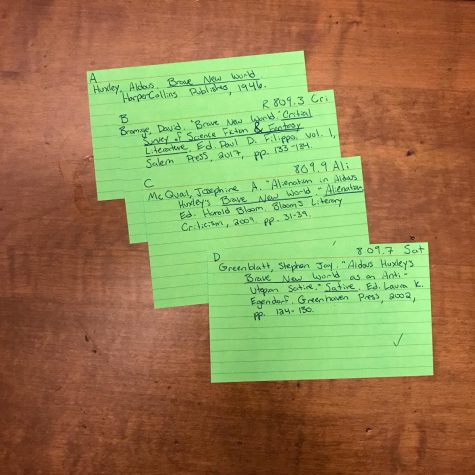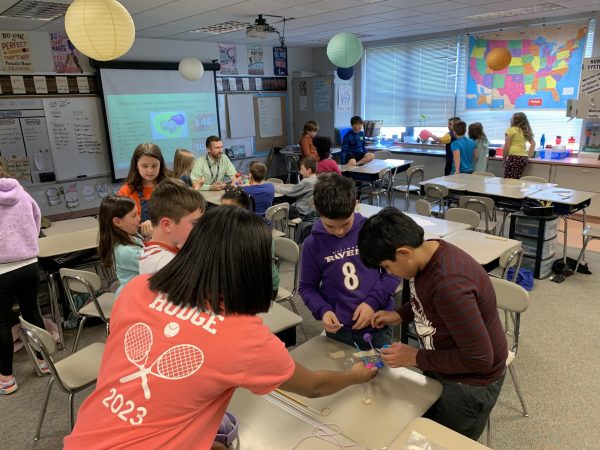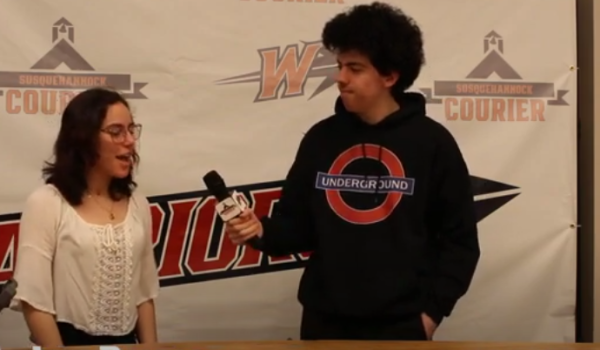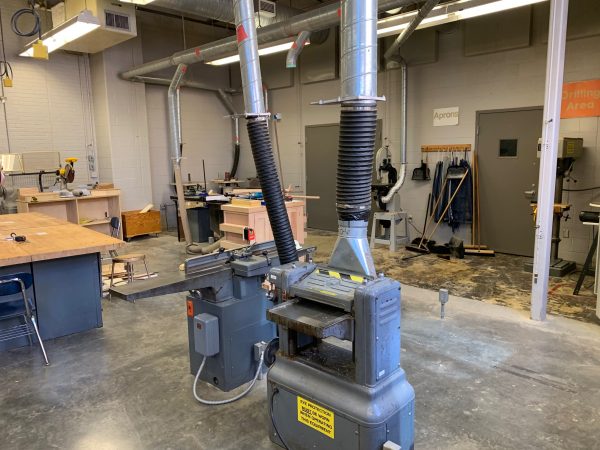Research Paper Season Brings Stress to Students
October 23, 2018
As research paper season approaches, students’ stress levels rise; however, some simple advice can lessen part of the burden.
From ninth through twelfth grade, English classes aim to construct a process for students where they can hone skills regarding precise, organized research with quality sources.
English teacher Tim Groth sees the annual research paper as an opportunity for students to build a formal style.
“It also asks students to take a look at formal writing and how they can take the research of others and put it into their own words into a comprehensive, thorough product,” said Groth.
English teacher Katharine Wilt considers research paper season as a refreshing break from the normal class setting.
“I love research paper season because it’s kind of a break from the normal,” said Wilt. “I also like research time because it’s very systematic and that’s not normally what English class is like.”
There is a sense of flexibility that stems from leaving the classroom into the library in search of exploration across topics and sources.
While there are many stages that comprise the research paper, one of the most important components is the initial choice of literature or subject matter for many papers.
Groth discussed how vital it is for students to choose works they will like.
“If you’re not going to enjoy the book that you’re going to analyze, then you clearly shouldn’t do it because it is a long process … the whole project stretches over a month, and you have to … have this genuine interest and connection with it because that is the only way it is going to be palatable,” said Groth.
If the work of literature is not enjoyable, neither will be the thorough analysis required by the paper, which can lead to sloppy work.
Senior Kate Cramer, a current AP English student, offered some advice for reading a research piece.

Photo by Camryn Brakmann
“I usually take lots of notes on [my book] somehow, whether that’s me writing in the book or taking notes other places,” said Cramer.
She also makes sure to finish the work early so that she has time to process what happened before finding sources for research.
Wilt pressed that it is important to stay caught up with due dates set by teachers throughout the research paper; otherwise, the most common mistakes – procrastination and poor organization – can create issues when it is time to write.
“Make sure you have a game plan before you start writing, or else it ends up becoming kind of a bundle of things,” said Wilt.
If a student does not have all the needed information prior to writing, then it becomes more challenging to chunk linked information together which only adds stress.
“Slowly but surely chip away at it,” said Wilt. “If you don’t chip away at it and you don’t hit the little due dates on the way, it becomes this massive burden that I’ve seen wreck you all … because of the size of it.”
Cramer added that the information itself should add more than just general information about the literary work being used.
“Don’t go for the filler or fluffy stuff. Go for what actually matters in your prompt and relate it to your book,” said Cramer.
When there is so much information available online and at the library, it can be easy to fall into a pit of facts that are not important to the paper, so it is key to be selective about what information is taken from sources.
Groth noted that another struggle comes from weaving quotes into the final product.
“The incorporation of quotes is always one of the hardest things students struggle with, mainly because it’s so hard to take your voice that you’ve developed over years and then have to take what is clearly the voice of a different author and fit that within your work and find a way to seamlessly incorporate it,” said Groth.
The best way to ease the stress of quotes is more practice and leaving enough time to work without rushing.
Once the written product comes along, time management comes into play once again..
“Create your rough draft, step away from it and just kind of forget that it exists for three to four days because when you come back to it, you’ll have sort of a new perspective on it, and you’ll be able to look at things differently and find some mistakes or find some places you can improve,” said Groth.
Cramer also offered some advice based on what she does for editing.
“The Writing Center is really helpful, and I usually go there every year to get revisions on my paper grammatically, to make sure everything makes sense, and I also have a lot of people outside of the Writing Center read it,” said Cramer.
It can be much more difficult to catch errors in one’s own work, which is why peer reviews can be so helpful.
In the end, the many elements of the research paper are connected by the importance of time management or else the massive task can quickly become too much to handle successfully.















